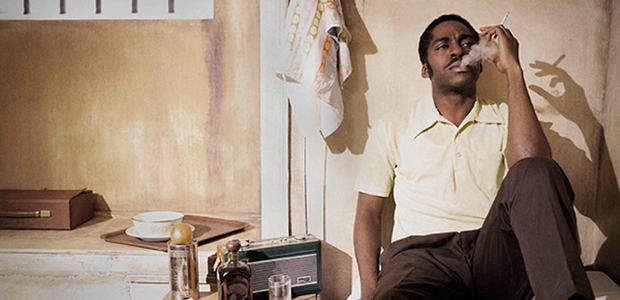
The Great Kilapy is a film full of political intrigue featuring an apolitical central character. Set during the 60’s at a time of great civil unrest in Angola, which was then under Portuguese colonial rule, director Zézé Gamboa skilfully captures and portrays the climate of the time in a film that is engaging and revelatory.
Revolving around the exploits of Joao Fraga, a colourful, larger than life engineering student who came to Lisbon during the early 60’s to study at the technical university, Kilapy, which means fraud in the Angolan language, follows him for nearly a decade charting his many friendships, love affairs, brushes with the secret police and in the end, his great swindle of the government’s treasury to pocket money for himself. Despite what the title may promise, Kilapy is far from a heist film and one of the pleasures of director Gamboa’s approach is the effortless way in which he moves the story forward, almost entirely based around Fraga’s time spent with his friends, avoiding the law or even bedding beautiful women—while dropping hints about what was going on in the country at the time. What makes Fraga an interesting character, a sort of blaxpoitation ladies man, is his nonchalant attitude to everything happening around him. Despite genuinely not wanting anything to do with the Angolan liberation movement he gets sucked into it primarily because many of his friends are part it and when one of them gets into trouble, he feels obligated to help him out, to his own detriment. As self-serving, almost selfish as Fraga is, he is never one dimensional and is played with poised charm and confidence by Lázaro Ramos.
If there is one thing that doesn’t quite work about Kilapy, it is the framing device of the overall story, which is narrated by a person in the present that once had a brush with Fraga. While it has all the hallmarks of myth creation (the film states at the beginning that it is based on facts), the occasional pauses to come back to the present and the somewhat abrupt, anti-climatic end hamper the viewing pleasure. Otherwise, Kilapy is a great example of cinema as a time capsule, especially when applied to a historical moment that isn’t showcased often.
Rating: 



